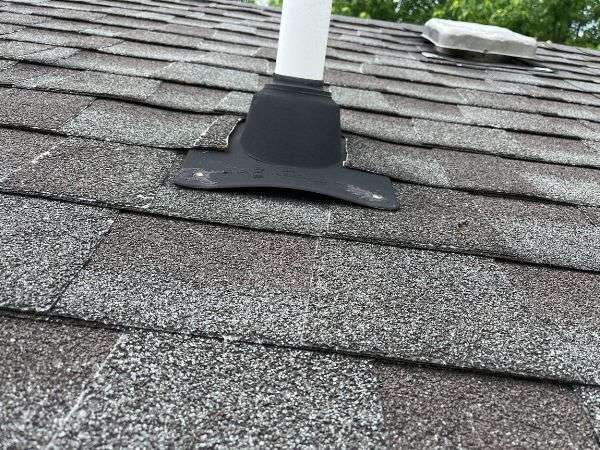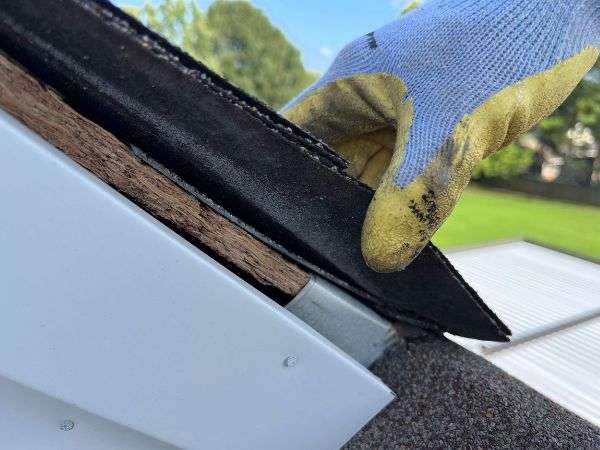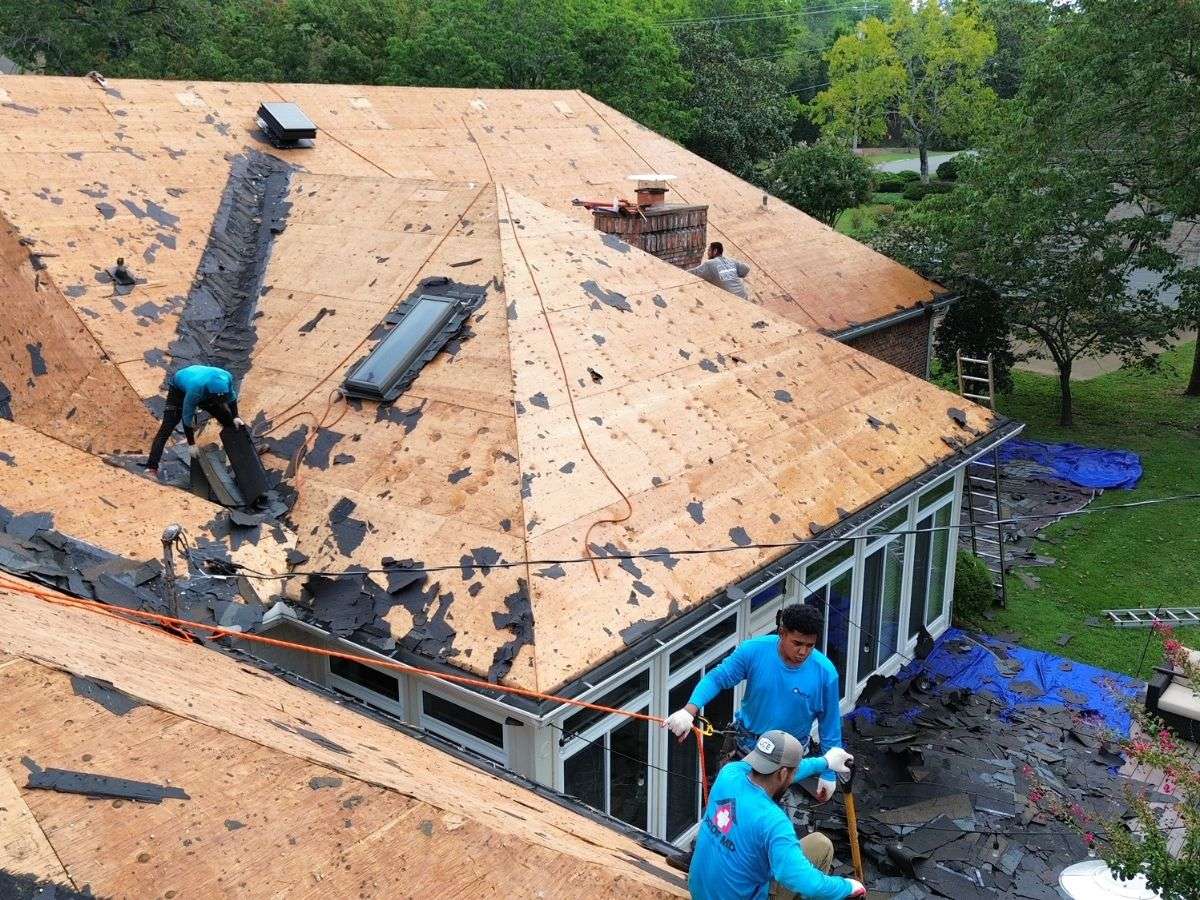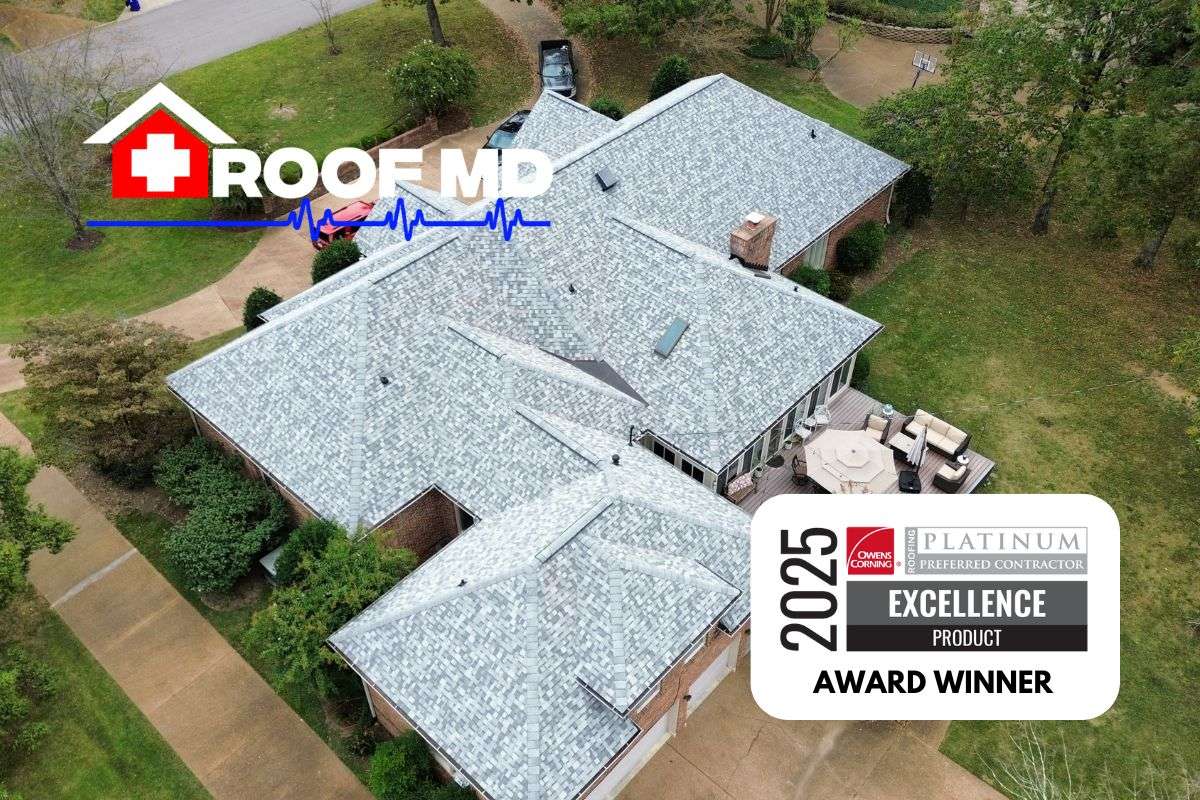A Homeowner’s Guide to Roofing Permits in Tennessee

Getting a new roof is a big deal—it’s one of the best investments you can make to protect your home and keep everything safe and sound. But here’s the thing: it’s not just about picking the best shingles or finding a trustworthy contractor. There’s one step many homeowners overlook—building permits. Yep, they’re a must for making sure your roofing project is done safely and legally.
Don’t worry, this guide will explain why permits matter, the risks of skipping them, and how they save you headaches later.
Why Hiring Unlicensed Roofers or Skipping Permits Is a Bad Idea
Let’s be real—when you see a low bid from a contractor, it’s tempting to say yes. But there’s often a catch, and it starts with cutting corners—like skipping permits. Here’s why some contractors avoid permits and why it’s a big deal for you.
Why Some Roofers Don’t Bother With Permits
Some contractors skip permits to save money, avoid fees, or dodge roofing inspections. Others might not even have the proper licensing or insurance to get permits in the first place—huge red flag! Avoiding permits might mean they’re ignoring building codes or planning shoddy work since no inspections will catch them.
The Real Costs of Unpermitted Work
Sure, skipping permits might seem like a way to save time and money, but it can actually cost you a lot more in the long run. Here’s how:
- Safety Issues: Work that fails to meet code can cause leaks, structural issues, or fire hazards—risking your home and family.
- Financial Surprises: That “cheap” job could end up costing you thousands in repairs. You might also face fines, lower property value, or trouble selling your home if the unpermitted work gets flagged.
- Insurance Woes: Your homeowner’s insurance might deny claims or drop your coverage if unpermitted work is involved.
- Warranty Problems: Many roofing material warranties require proper installation and permits. Skip the permit, and you might void the warranty entirely.
- Legal Risks: If an uninsured worker gets hurt on your property, you could be held liable. Plus, not disclosing unpermitted work to future buyers could land you in legal trouble.
Bottom line? Skipping permits isn’t worth the risk. It’s always better to follow the rules and make sure your roofing project is done right.

Common Issues We See: Plumbing Boots Not Sealed or Secured

Common Issues We See: Missing Flashing or Improper Shingle Application
Permits: They’re More Than Just Paperwork
Building permits might seem like a hassle, but they’re actually there to protect you, your home, and even your community.
What’s the Point of a Permit?
Permits are about safety. They ensure your roofing project meets local standards for structural strength and fire resistance. In Tennessee, codes like the International Residential Code (IRC) are in place to protect public health and safety.
A permit doesn’t guarantee a great contractor, but it ensures the work meets safety standards and passes inspections. Permits also protect your property value by documenting code-compliant work, which helps with appraisals and resale. Plus, they provide legal peace of mind by creating an official record of properly completed work.
Who’s Responsible for Getting the Permit?
In most cases, your contractor is responsible for pulling the permit. But Tennessee homeowners can apply for a “Self Permit” if they live in and own the house and plan to do the work themselves. That said, unless you’re a pro, roofing is not a DIY kind of job. Leave it to a licensed contractor.
If your contractor asks you to pull the permit, that’s a red flag. They might lack proper licensing, insurance, or be shifting responsibility to you. Always ensure your contractor handles permits—it’s their job!
The Roofing Permit Journey: From Application to Approval
Getting a roofing permit isn’t just about following the rules—it’s about protecting your home and your peace of mind. Whether you’re replacing a roof or handling major repairs, doing it right from the start can save headaches later. Your home (and your wallet) will thank you.
Knowing the steps involved in getting a roofing permit can help you avoid surprises and ensure your contractor is doing things by the book. The process typically involves applying, plan reviews, paying fees, getting the permit, and scheduling inspections.
When Do You Need a Roofing Permit in Tennessee?
In Tennessee, roofing permits are typically needed for major projects like new installations, full reroofs, or large repairs. For minor fixes, permits might not be necessary, but it’s always a good idea to check your local building codes. Here’s a quick look at how different areas handle permits:
- Nashville (Davidson County): Permits are needed for siding, fireplaces, solar panels, and roofing. Rules include permits for “Roofing, New Layer or Replacing More Than 1/3 of The Roof” and “Carpentry Replacing Any Structural Element, Joist, Rafter, Stud, Etc. Roof Decking More Than 64 Sq. Ft.”
- Cleveland, TN: A permit is required for replacing structural decking, but shingle replacements may not need one. All work must meet code, including installing drip edges on new roofs.
- Murfreesboro (Rutherford County): Permits are needed for major construction or repairs like full replacements or structural fixes. Check with the Murfreesboro Building and Codes Department to confirm.
- State Level: If there’s no local enforcement, state building codes apply. Additions over 30 square feet have required permits since 2011, so large projects are taken seriously.
Bottom line: Rules differ by location, so always check with your local building department before starting any roofing work.
What’s the Permit Application Process Like?
The process of getting a roofing permit is pretty straightforward, but it can vary depending on where you live. Here’s how it generally works:
- Apply: Either your contractor or you fill out an application with details about the project, materials, and property. For structural changes, some areas might ask for additional documents like site plans.
- Application Review: Local officials check the application to make sure the project follows zoning and building codes.
- Contractor Review: Most counties ask to verify your contractors business information including their Business license, Contractor license, Workers Comp, Bond, and Liability Insurance.
- Pay Fees: Permit fees are calculated based on factors like construction cost or square footage.
- Get the Permit: Once approved and paid, the permit is issued, and the roofing work can officially begin.
Why Inspections Matter
Getting the permit is just the first step—inspections are just as important. These ensure the work is safe, up to code, and matches the approved plans. Here’s how inspections typically work:
- Who Does Them: Local city or county inspectors, or state-contracted inspectors in certain areas.
- Common Inspection Stages (may vary):
- Tear-off/Decking Inspection: After old roofing is removed, inspectors check the deck for rot or damage, which must be fixed before moving on.
- Mid-roof/In-progress Inspection: Rare for basic residential projects, but some areas require checks during installation for underlayment, nailing, or flashing.
- Final Inspection: Once the roof is complete, inspectors ensure shingles, flashing, drip edges, and ventilation meet code.
- Scheduling Inspections: Contractors usually handle this. In Murfreesboro, call 615-893-3750 with your permit number. State projects can be scheduled at core.tn.gov or via email.
- Failed Inspections: If something isn’t up to code, inspectors issue a correction notice. Contractors fix the issues and arrange a re-inspection. Some areas allow one free re-inspection; additional ones may have fees.

Inspections aren’t just formalities—they’re there to make sure your roof is safe, sturdy, and up to standard. Taking the time to follow these steps will give you a roof you can count on for years to come.
Tennessee Roofing Rules: What You Need to Know
When it comes to roofing in Tennessee, there are a few key rules and regulations to keep in mind. Roofing is overseen by state contractor licensing and local building codes, so it’s important for homeowners to understand how it all works.
State Contractor Licensing
Tennessee doesn’t have a roofing-specific license, but roofing contractors often need broader licenses depending on the size of the project:
- Contractor’s License: For projects over $25,000, contractors must be licensed by the Tennessee Board for Licensing Contractors. This involves passing a Business and Law exam (and sometimes a trade-specific one), submitting financial statements, providing references, registering with the state, and paying a $250 fee.
- Home Improvement License: For residential projects between $3,000 and $24,999, contractors need this license. Requirements include a $10,000 bond or letter of credit, $100,000 liability insurance, workers’ comp coverage, and a $250 fee.
These licenses are designed to protect homeowners by ensuring contractors are financially stable, competent, and insured.
Local Permits and Inspections
Your city or county also plays a big role in roofing regulations. Local governments handle permits, application processes, and inspections. If you live in an area without local enforcement, Tennessee’s Residential Building Code steps in. Either way, permits are key to making sure roofing work is up to code.
Your Murfreesboro Roofing Solution: Roof MD
Why Hiring the Right Roofer Matters
Getting a new roof isn’t just about finding someone who can swing a hammer—it’s about finding a trusted professional who knows their stuff. The right roofing contractor should be licensed, insured, and know their way around permits and building codes. Here’s why it matters:
- Licensing & Insurance: A licensed roofer (whether they have a Contractor’s License for big projects or a Home Improvement License for smaller ones) meets state standards for skill and financial stability. Plus, they carry workers’ comp insurance to protect you if someone gets hurt and general liability insurance to cover property damage. In short, you’re covered.
- Permits Made Easy: The right roofer will handle permits for you—no headaches, no paperwork on your end. They’ll include the cost in your quote, file the forms, and schedule inspections. You won’t have to lift a finger.
- Credentials That Count: Look for certifications or awards, like the Owens Corning Roofing Platinum Excellence Award. These show the roofer is serious about quality, customer service, and following manufacturer guidelines—key for keeping your warranty intact.
Hiring a licensed, insured roofer who’s on top of the permitting process gives you peace of mind. They’ll handle the tough stuff—codes, permits, legal requirements—so you can focus on loving your new roof. It’s an investment in safety, durability, and value.

Why Roof MD is the Right Choice for Middle Tennessee
If you’re in Murfreesboro or Middle Tennessee, you need a roofing contractor you can trust—someone professional, experienced, and fully compliant with regulations. That’s where Roof MD comes in.
Here’s why they’re the go-to choice:
- Licensed Pros: Roof MD holds Tennessee Roofing Contractor License #75655, fully compliant for projects over $25,000 and smaller jobs between $3,000 and $24,999.
- Decades of Experience: With 30+ years in roofing, Roof MD handles every type of project with ease.
- Award-Winning Quality: Winner of the Excellence Award at the 2025 Owens Corning Roofing Platinum Conference, Roof MD delivers durable, top-tier roofing systems.
- Customer-Approved: Rated 5.0 on Angi for professionalism and responsiveness, with an A+ BBB rating.
- Customer-Focused: Roof MD prioritizes making homeowners feel secure and satisfied with their roofing experience.
From repairs and replacements to storm damage restoration, Roof MD has you covered. They offer free estimates, state-licensed work, and industry-backed expertise.
Ready to get started? Visit our website or call (866) 973-6090.

